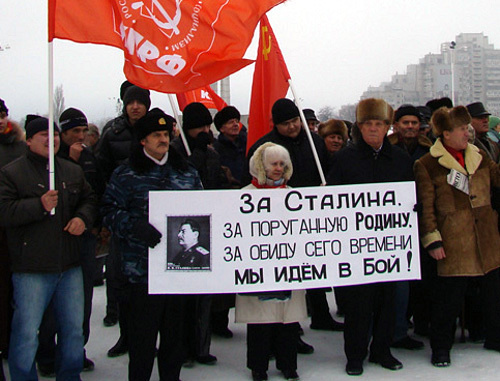
05 March 2013, 13:00
60 years after death of Stalin: debates never cease
Today is 60 years since the death of Joseph Stalin. Dissidents traditionally mark this day as a holiday; however, the modern society sees the trends, which indicate the transformation of attitude to the personality of Stalin; however, according to sociologists, most Russians believe that March 5 is the day of the end of "Great Terror".
The Soviet dissident tradition has used to celebrate Stalin's death as a holiday. "When three years after Stalin's death Khrushchev explained us that Joseph Dzhugashvili was a mass killer, a tyrant and a despot, few people were indignant, most perceived the information for granted," Vladimir Bukovsky, one of the founders of the dissident movement in the Soviet Union, wrote in the publication " Gordon's Boulevard".
Experts see the roots of the modern problems of Northern Caucasus in Stalin's deportation of Caucasian nations.
Stalin's busts, monuments and museums were built and opened in various regions of Russia and Southern Caucasus. Thus, North Ossetia has 26 installed monuments and busts. Restoration of monuments to Stalin meets criticism of human rights defenders, while monuments themselves are often the targets of attacks committed by unidentified persons.
According to sociologists, Russians associate Stalin's death more with cessation of mass repressions, than with the loss of "the great leader and teacher". The former category has 55 percent and the latter one – 18 percent of respondents, the "Interfax" writes referring to the nationwide survey conducted by the "Levada-Centre".





Комментирование через Кавказский узел